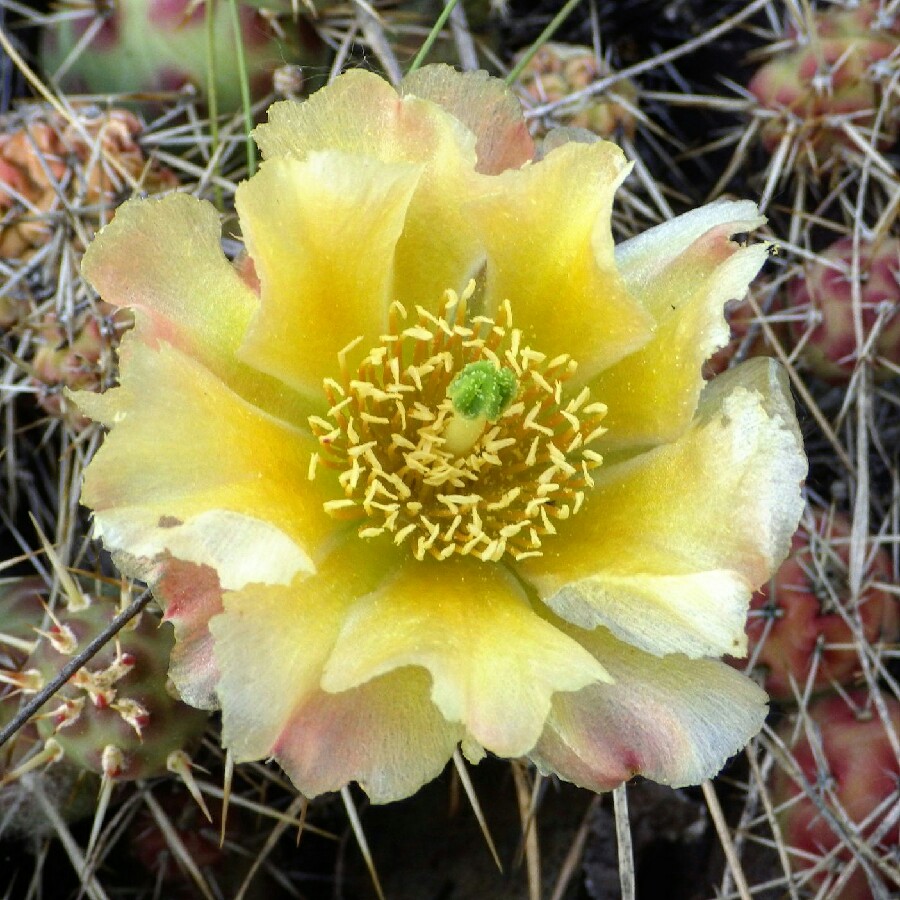
Opuntia fragilis
Brittle Pricklypear
Fragile Prickly Pear sports small pads that are about an inch or two in length, rounded, with long sharp spines. From their tips they produce new pads, which are weighed over, falling to the ground to then form new roots, forming a colony. These young pads break off easily thus allowing the plant to spread widely.
Contributed by @BotanicalJesus
-
Full sun to partial shade
-
Very little water
-
Frost Hardy: 23F (-5°C)
-
Light and free draining
Common name
Brittle Pricklypear
Latin name
Opuntia fragilis
type
Flowering plant
family
Cactaceae
ph
5.0 - 7.5 Acid - Neutral
Plant & bloom calendar
-
Best time to plant
full grown dimensions
 0.30 M
0.25 M
0.30 M
0.25 M
Opuntia fragilis
Fragile Prickly Pear sports small pads that are about an inch or two in length, rounded, with long sharp spines. From their tips they produce new pads, which are weighed over, falling to the ground to then form new roots, forming a colony. These young pads break off easily thus allowing the plant to spread widely.
Propogation by cuttings
From Early Spring TO Early Spring
Prickly pear cactus can be propagated from seeds or from pads. Growing prickly pear from pad is comparatively easy than seeds. To facilitate the rooting it is preferable to wait until the cuts are perfectly healed (about 1 – 2 week) before planting. Tuck them an inch deep on the ground or in containers. The rooting take place in a short time, usually in a month. Save the rooting pad from afternoon sun and water it when top one inch of soil seems dry.
Planting
From Early Spring TO Early Spring
Growing prickly pear cactus on a sunny location allows the plant to thrive and fruit. Prickly pear cactus is a tropical plant so it loves warm exposure. However, it can withstand temperatures down to 14 F (-10 C) but in areas with harsh winters it is good to plant it on a sheltered spot, near a wall or tall tree to protect it from cold drafts and fluctuation in temperature. If you’re living in a cooler climate, growing prickly pear cactus in a container is the better option for you as it can only be grown on the ground where winter temperature remains above 14 F (- 10 C).











